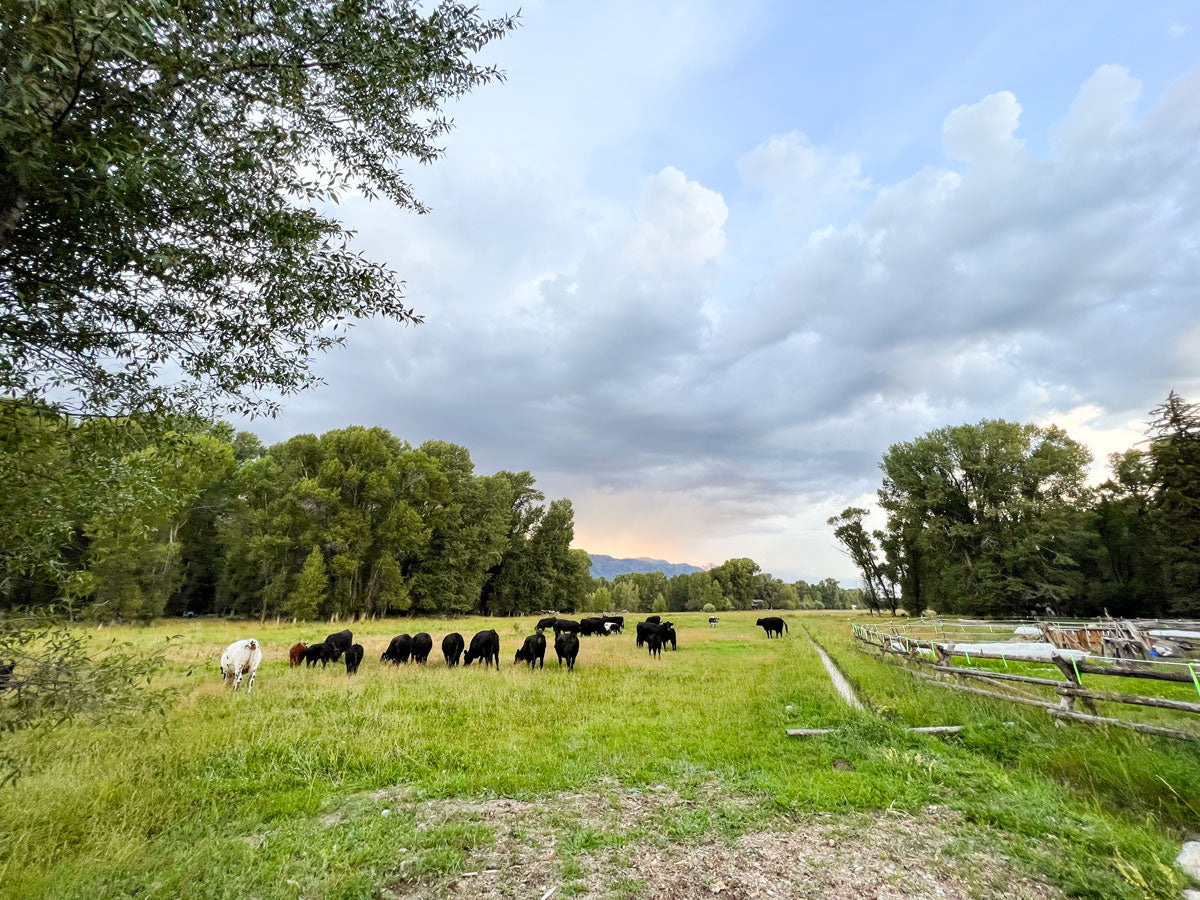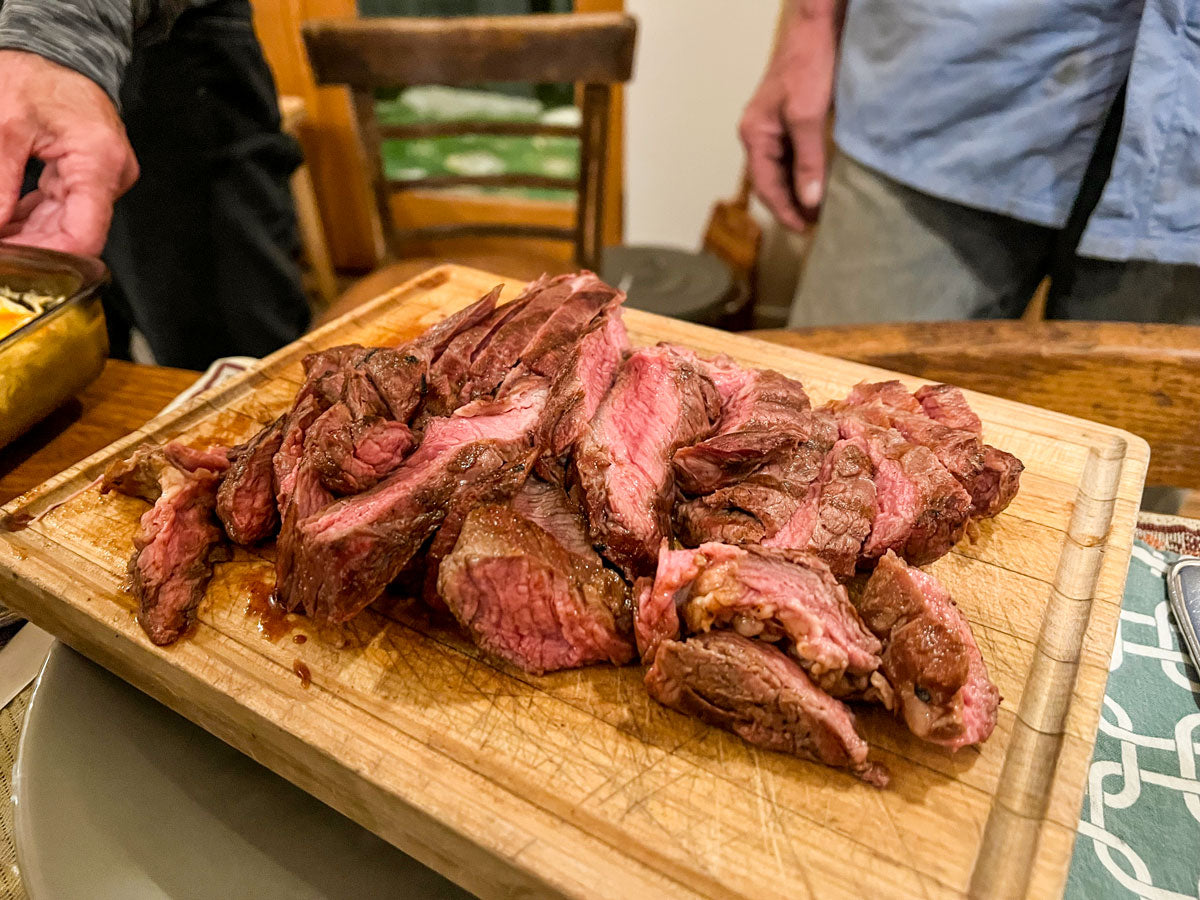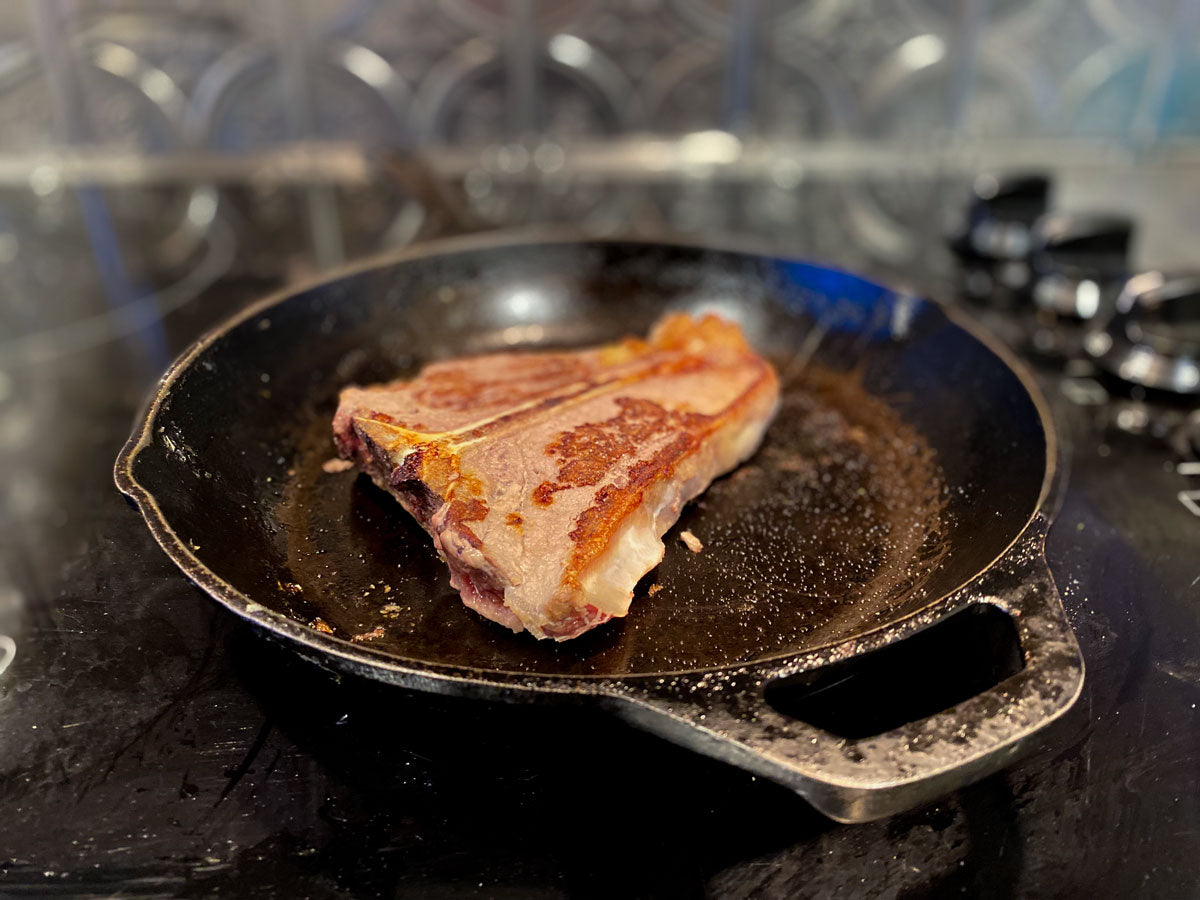Linn Ranch 100% Grass-Fed Beef
Couldn't load pickup availability
Beef straight from our meadow to your table for $14/lb.
Here on the Linn Ranch we have been cattle ranching for over one hundred years. We love what we do and are dedicated to raising our cattle to the highest standards using the principles of regenerative agriculture, animal compassion, and habitat conservation. Our cattle are roaming free on pasture for the duration of their lives, with no hormone injections, no antibiotic prophylaxis, and no grain-finishing. We raise our cows the way nature intended. You can taste the difference!
We want our beef to be affordable for our community.
Organic grass-fed steak at Albertsons in Jackson is currently $16/lb or more - so buy wholesale instead and get a great selection of cuts and some of the best burger in Jackson Hole!
Pickup details
Beef shares are available immediately. Please call 307-690-3751 or send an email to beef@linnranch.com to arrange a pickup time at 3900 Linn Drive (please note that this is not the pickup location for our CSA Memberships).
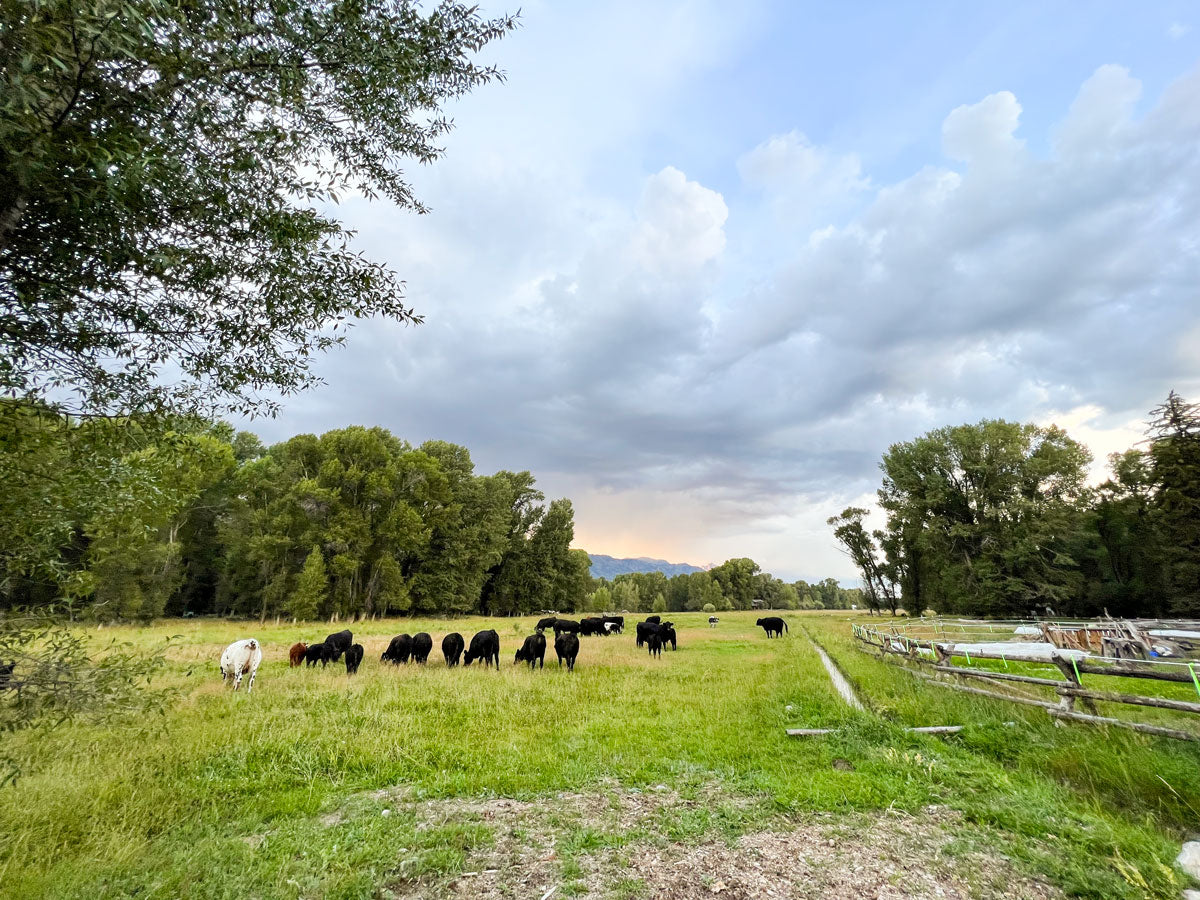
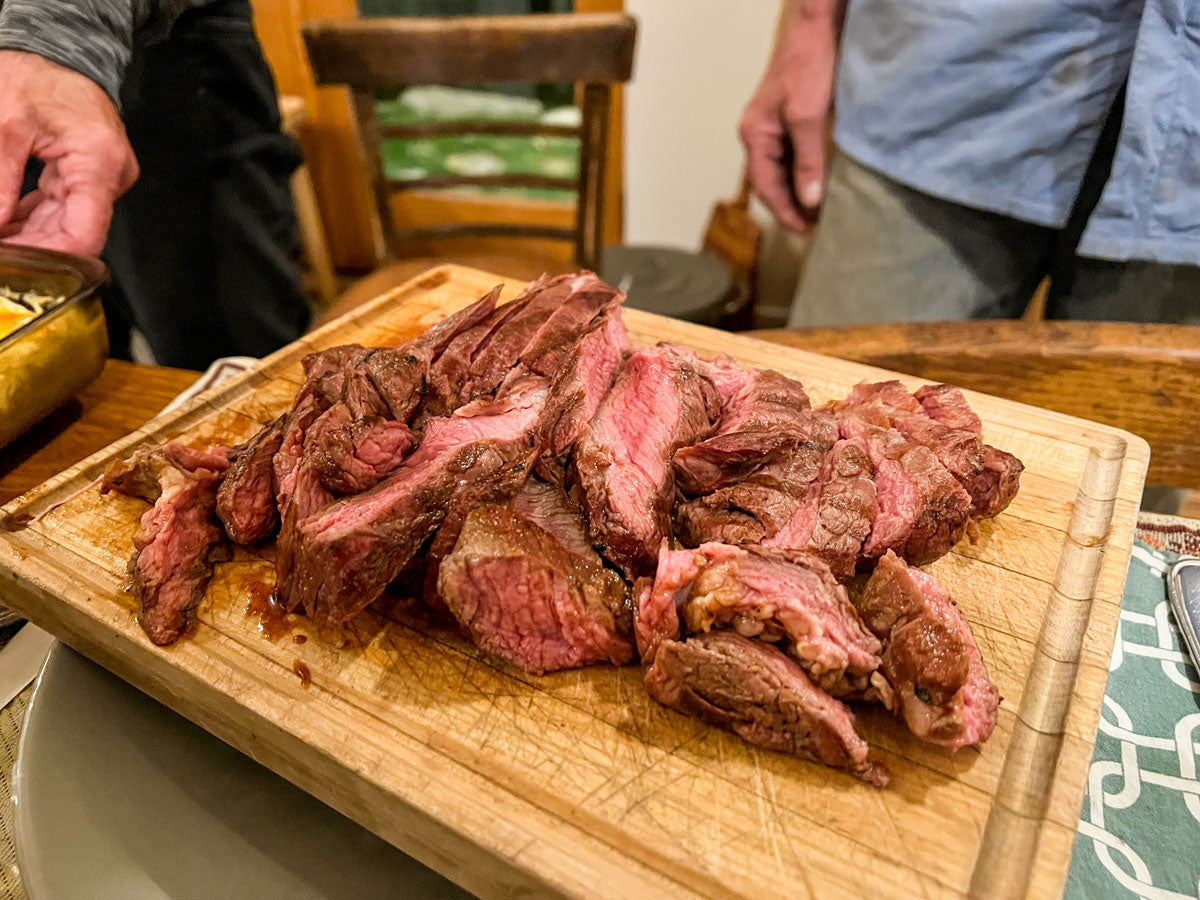
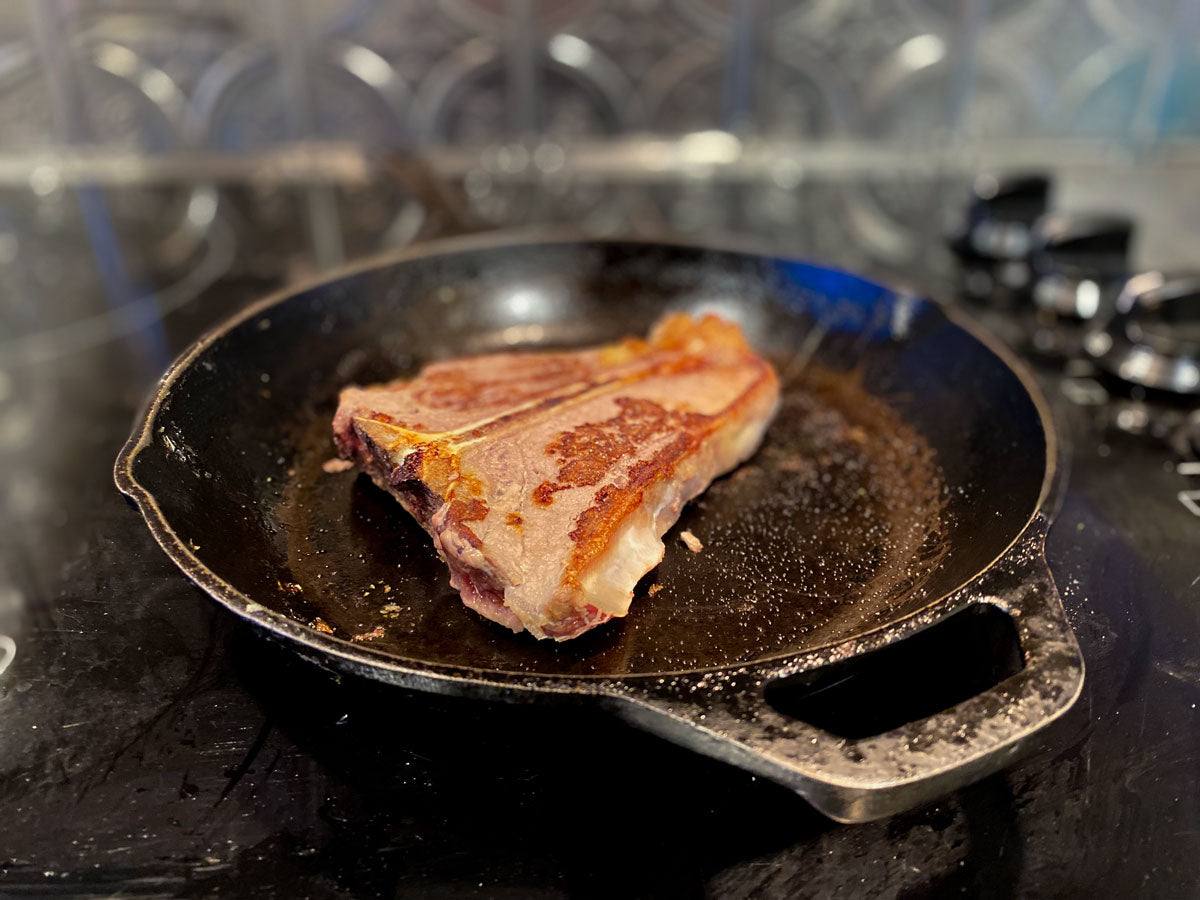
You can also find us at Hungry Jack's
Head down to Hungry Jack's General Store in Wilson, Wyoming, to shop for Linn Ranch Beef. They have ground beef and a selection of cuts available.
Need More Info?
Frequently Asked Questions
Why grass-fed beef?
Cows are herd animals that are happiest when they can roam and graze. The vast majority of beef produced in the United States these days comes from feedlots where the animals are kept in pens and fed grain meant to add weight to them quickly. Our animals are on pasture their whole lives, which makes for happy and naturally well-fed animals. Our beef is downright delicious!
When & where do I pick up my share?
Please call us at 307-690-3751 or send an email to beef@linnranch.com to arrange your pickup time. The pickup spot for beef shares is 3900 Linn Drive.
Aren't cows bad for the environment?
The honest answer is: it depends. Cattle produce lots of methane gas as they digest their food, which contributes a significant amount to global warming and climate change. However, they also play a crucial role in the creation of healthy topsoil, which is an even more important element in the fight against climate change. Cows are herd animals, and if they are managed using a technique called intensive-grazing they mimic what the native bison did for the American soil for millennia.
In intensive-grazing the herd is kept in one small pasture in order to graze it down completely and then moved quickly to a new pasture. The animals add lots of biological material to the area and they crush plant residue down into the soil surface, which protects it from evaporation and erosion. Lastly, the plants themselves respond to the stress of being grazed by putting a ton of energy into new growth, both above and below the soil surface. The pasture will then be left alone and allowed to completely regrow before the herd returns.
Here on the Linn Ranch we utilize temporary electric fences in the summer months to move our animals around and graze different parts of the ranch.
If you'd like to learn more about the role of animal grazing in building healthy soil, we highly recommend the book Dirt To Soil by Gabe Brown.
How big is a 30lb beef share?
A 30lb share is roughly the size of a medium sack of potatoes. If you have a small freezer it will take up about half the space inside. If a 30lb share is more than you need we suggest splitting with a friend!

